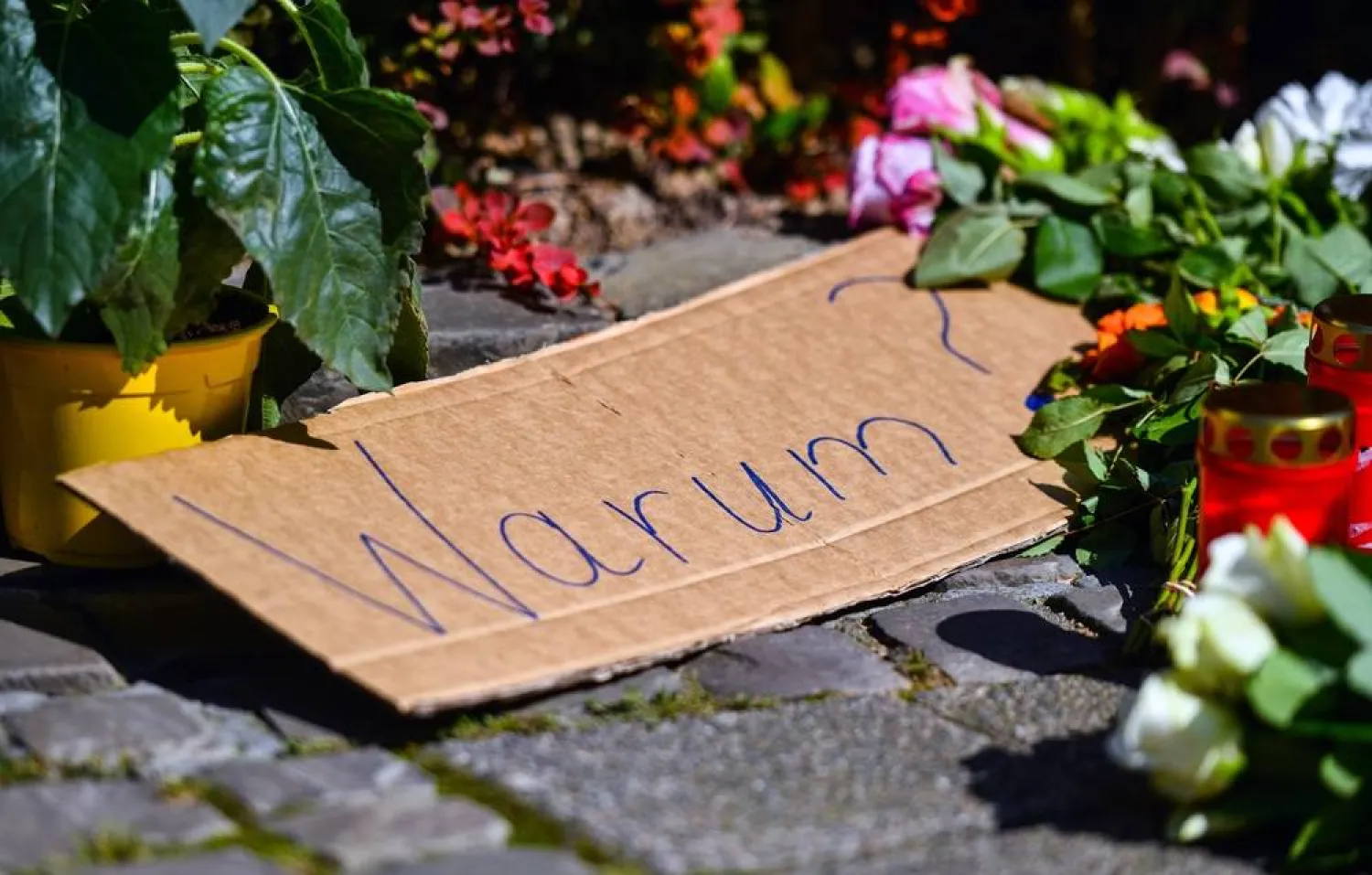The ISIS group Saturday claimed responsibility for a knife attack in Solingen, Germany that killed three people and wounded eight others, according to its Amaq news site.
The group said the attacker carried out the attack "to avenge Muslims in Palestine and everywhere."
Police began raiding a home for asylum seekers in the city center of Solingen, including with special forces, the German news agency DPA reported.
"We have received tips and therefore we are currently conducting police activities," a police spokesperson said.
Special police units had joined the search for the unknown knifeman who cut the throats of revelers at a crowded festival in the western German city, killing three people and wounding at least eight others, four of them seriously.
A 15-year-old boy was arrested early Saturday. Police said he was suspected of knowing about the planned attack and failing to inform authorities, but he was not the attacker.
Markus Caspers, from the counterterrorism section of the public prosecutors office, told a news conference on Saturday that authorities have not found the perpetrator.
"So far we have not been able to identify a motive, but looking at the overall circumstances, we cannot rule out" the possibility of terrorism, Caspers said, though he did not offer further details.
The three people who died were two men aged 67 and 56 and a 56-year-old woman, authorities said. Police said the attacker appeared to have deliberately aimed for his victims' throats.
Thorsten Fleiss from the German police, who was the chief of operations on Friday night, said that police are conducting various searches and investigations in the entire state of North Rhine Westphalia that will continue throughout the day.
He said that it is a "big challenge" to bring together available evidence and testimony from witnesses in order to come up with a overall picture.
Fleiss also said that police have found several knives but added that he was unable to confirm whether any of them have been used as weapon by the perpetrator during the attack.
Police warned people to stay vigilant even as well-wishers started to leave flowers at the scene. Authorities established an online portal where witnesses could upload footage and any other information relevant to the attack.
Churches in Solingen have opened their doors to offer a space for prayer and emergency pastoral care.
German Interior Minister Nancy Faeser paid a visit to Solingen on Saturday evening. She said that the government would do everything possible to support the city and the people Solingen.
"We will not allow that such an awful attack divides our society," she said, appearing alongside Minister-President of the German State of North Rhine Westphalia Hendrik Wüst and State Minister for Internal Affairs Herbert Reul.
Wüst described the attack as "an act of terror against the security and freedom of this country." But Faeser, the country’s top security official, hasn’t classified it as a "terror attack."
Reul announced that the planned visit of the interior minister to the crime scene wouldn't take place because of the ongoing police operation in the affected areas of the city. He pleaded with the public to "give time to the police" so that they can do their work. He also said that police presence would be increased at larger events, especially because the perpetrator hasn't been caught yet.
People alerted police shortly after 9:30 p.m. Friday to an unknown attacker having wounded several people with a knife on a central square, the Fronhof.
"Last night our hearts were torn apart. We in Solingen are full of horror and grief. What happened yesterday in our city has hardly let any of us sleep," the mayor of Solingen, Tim Kurzbach, said, speaking to reporters on Saturday near the scene of the attack.
The "Festival of Diversity," marking the city’s 650th anniversary, began Friday and was supposed to run through Sunday, with several stages in central streets offering attractions such as live music, cabaret and acrobatics.
The attack took place in the crowd in front of one stage. Hours after the attack, the stage lights were still on as police and forensic investigators looked for clues in the cordoned-off square. The rest of the festival was canceled.
Solingen has about 160,000 residents and is located near the bigger cities of Cologne and Duesseldorf.
Caspers told the news conference that the 15-year-old boy was arrested after two female witnesses contacted police. They said they had listened to a conversation between the boy and an unknown person before the attack, speaking about intentions that corresponded to the events that followed.
German Chancellor Olaf Scholz said on Saturday that the perpetrator must be caught quickly and punished with the full force of the law.
"The attack in Solingen is a terrible event that has shocked me greatly. An attacker has brutally killed several people. I have just spoken to Solingen’s mayor, Tim Kurzbach. We mourn the victims and stand by their families," Scholz said on X.
German President Frank-Walter Steinmeier also spoke to Kurzbach on Saturday morning.
"The heinous act in Solingen shocks me and our country. We mourn those killed and worry about those injured and I wish them strength and a speedy recovery from all my heart," Steinmeier said in a statement on Saturday.
"The perpetrator needs to be brought to justice. Let’s stand together — against hatred and violence."
There has been concern about increased knife violence in Germany, and Interior Minister Nancy Faeser recently proposed toughening weapons laws to allow only knives with a blade measuring up to 6 centimeters (nearly 2.4 inches) to be carried in public, rather than the length of 12 centimeters (4.7 inches) that is currently allowed.









